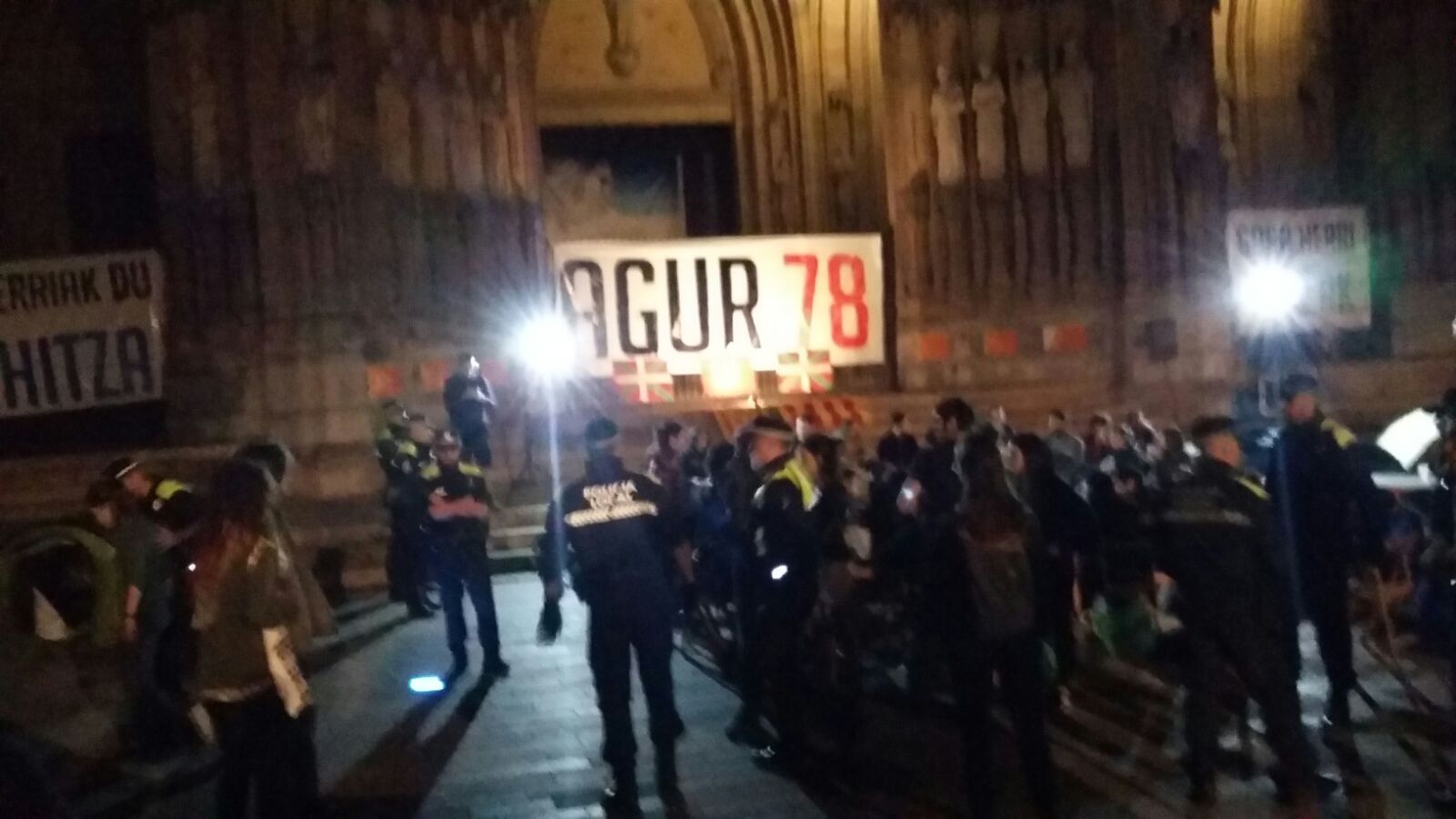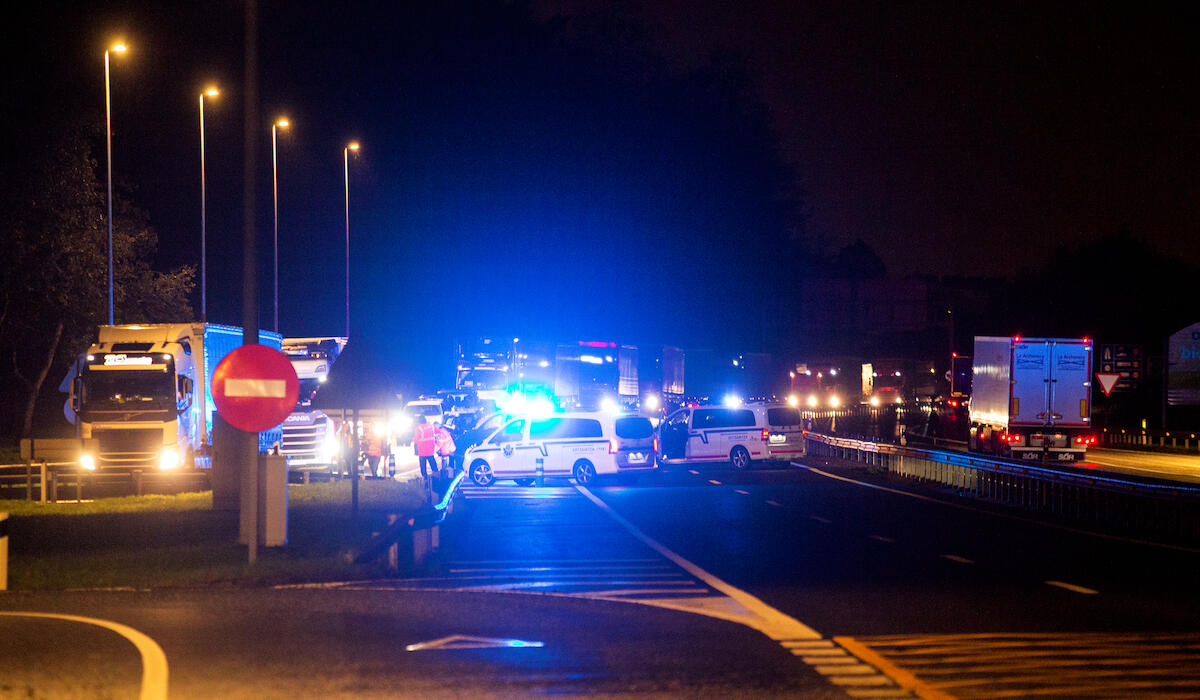
- The Provincial Court of Bizkaia has amnestied four young people condemned for mobilizing in connection with the independence process in Catalonia. Between 2011 and 2023, they were also convicted in Euskal Herria for acts of solidarity with Catalonia, either administratively or criminally. Does the Amnesty Law apply to all of them? Yes, Setién’s lawyer, Óscar Sánchez, says that he has achieved amnesty for the four young people. ARGIA referred to the content of the resolution and ways of requesting its application in other cases.

Sánchez is satisfied with the resolution of the Provincial Court of Bizkaia: “The car is very specific and has been approved unanimously.” However, the lawyer of Hiru Abogados of Bilbao explained that this is a complicated and “strange” procedure for its processing. The origin of the case lies in a mobilisation called in Bilbao in October 2019 through social media against prison sentences against the leaders of the referendum. According to the car, the mobilization was not authorized, a Ertzaintza patrol appeared, the attendees sat and a police charge occurred. Initially, five persons were prosecuted for crimes of resistance, minor injuries, public disorder or attack on an authority agent.
Once the date for the trial was set, Sánchez requested its postponement on the grounds that the Amnesty Act was in process and would affect the case, but the court did not accede to the petition. The parties reached an agreement, "especially to avoid the risk of incarceration," the lawyer explained, who asked for two and a half years of imprisonment for four young people and two and nine months for the fifth, he explained. The penalty was in fines, in civil liability to pay the Ertzainas and in a six-month prison sentence, since in the absence of a record, prison sentences are usually not carried out.
Citizens will be able to request the amnesty of administrative and criminal penalties received in Hego Euskal Herria in the context of the Catalan independence process between 2011 and 2023.
Once the Amnesty Law was passed, Sanchez applied for it, the court asked the Prosecutor's Office for an opinion, the Prosecutor's Office did not reply, and after some time the mandate for the execution of the sentence came to the convicted. That's when the defense filed an appeal, and in early September, the car for which they were convicted was "suddenly" received. The Public Prosecutor’s Office has not submitted any appeals, so the judgment is firm.
Applicable to more pensioners
We cannot know how many citizens have been convicted in mobilizations or solidarity actions with Catalonia between 2011 and 2023 (that is the time that the Amnesty Law contemplates), but the question is clear. Does it apply to the four young people in Bilbao in other cases? Should amnesty be applied to the rest of the Basques who have been condemned by the independence process? Sanchez says yes.

Two examples. On the one hand, in October 2017, before the referendum, a human chain began in Donostia from Plaza Cataluña to the center, distributing ballot papers and pasting posters on the walls. Subsequently, a citizen was fined based on the “visual identification” of the Ertzaintza. On the other hand, in November 2019, Tsunami Democratic called Operation Caracol to block the border with the slow march of cars. In the following days and weeks, several citizens reported that they had received fines for failing to comply with current regulations. The Amnesty Law should apply to this type of person, as well as to all those who have been tried through criminal proceedings, Sanchez explained. In the case of administrative fines, the law specifies that only the money will be returned from the fines imposed by the Mordaza Law.
How to get amnesty?
There are two main ways of amnying a crime or a fine. The first would be for the law to be applied ex officio by the police, administrations and courts, that is, on their own initiative. Returning the money or removing the background from fines or civil liabilities, or suspending proceedings if they are open. That would be “logical”, according to Sánchez, and he mentioned two antecedents. Once the courts concluded that the confinement was illegal, the Basque Government automatically returned to the citizens the money from fines for violation of it. In June of this year, the Generalitat granted an amnesty to all those condemned by the Catalan Law of Mordaza. However, so far there have been no administrations, police or courts in Álava, Bizkaia and Gipuzkoa or Navarre.
The second option is for the sanction itself to take the initiative. Sanchez sees two avenues for both administrative and criminal proceedings, although he has stressed that the Amnesty Law does not provide for any concrete procedure for its implementation. In the event that the procedure is open, the citizen should appeal the sentence asking for the application of the Amnesty Law. If the procedure is closed, the pensioner must submit a legally motivated letter for the law to be applied retroactively.